
Meet the mayoral and Ward 7 candidates in the 2017 municipal election
By Jason Herring and Tina Shaygan, October 5 2017 —
Every four years, the City of Calgary holds an election for the mayor, councillors and school board trustees. We reached out to candidates for mayor and for council in Ward 7 — the ward the University of Calgary is located in — to find out a bit more about their candidacy. We asked each candidate the same slate of questions, including why they are running and what they think are the biggest student issues of the election.
We spoke with eight of the 10 candidates for mayor and all five candidates for Ward 7 councillor. We were unable to reach mayoral candidate Stan “the Man” Waciak. We also chose not to contact mayoral candidate Larry Heather. These profiles are meant to inform — read them, but also research candidates, watch debates and ask them questions yourself.
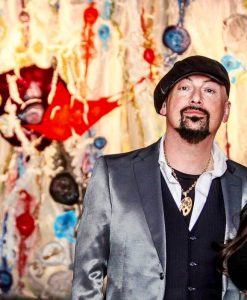
JASON ACHTYMICHUK – Running for Mayor
“I can’t sell half a painting and I feel like the mayor is selling me half a painting.”
Jason Achtymichuk has worked as a visual artist for 20 years, making art in Calgary and Los Angeles under the name Jason Gogo. He says his experiences negotiating with clients, galleries and sponsors give him the skills required to be mayor and adds that he was inspired to run after not being satisfied with the slate of mayoral candidates.
“It’s not really interesting, no one’s saying anything different, it’s just a bunch of back and forth arguing,” Achtymichuk said.
Achtymichuk says his main concern is that “stagnation on city council leads to voter apathy.” He points to secondary suites, the Green Line LRT and flood mitigation as examples of things that the city hasn’t made enough progress on, something he blames on incumbent mayor Naheed Nenshi.
“We’ve gone through two city councils and they can’t agree on anything. I’m starting to think the common denominator may be the mayor,” Achtymichuk said.
The rest of Achtymichuk’s platform surrounds increased public art funding and leadership on council. He wants to approve the Green Line, which was greenlighted for a first stage of development in May, for full development. Achtymichuk also wants to rotate through council members to decide who chairs city council meetings, a decision he says will help build a team.
Public transportation and public art are the election issues that will most affect students, says Achtymichuk. He says that public art makes Calgary a more appealing city to international students and says it is one of the city’s most important assets. He also wants the city to finalize legislation that would legalize secondary suites.
Overall, Achtymichuk feels that voters did not have enough good options for a mayor and thinks that the vote will come down to a field of five candidates, including himself. He also noted that his entire campaign will take place on social media, with no pamphlets or door-knocking.
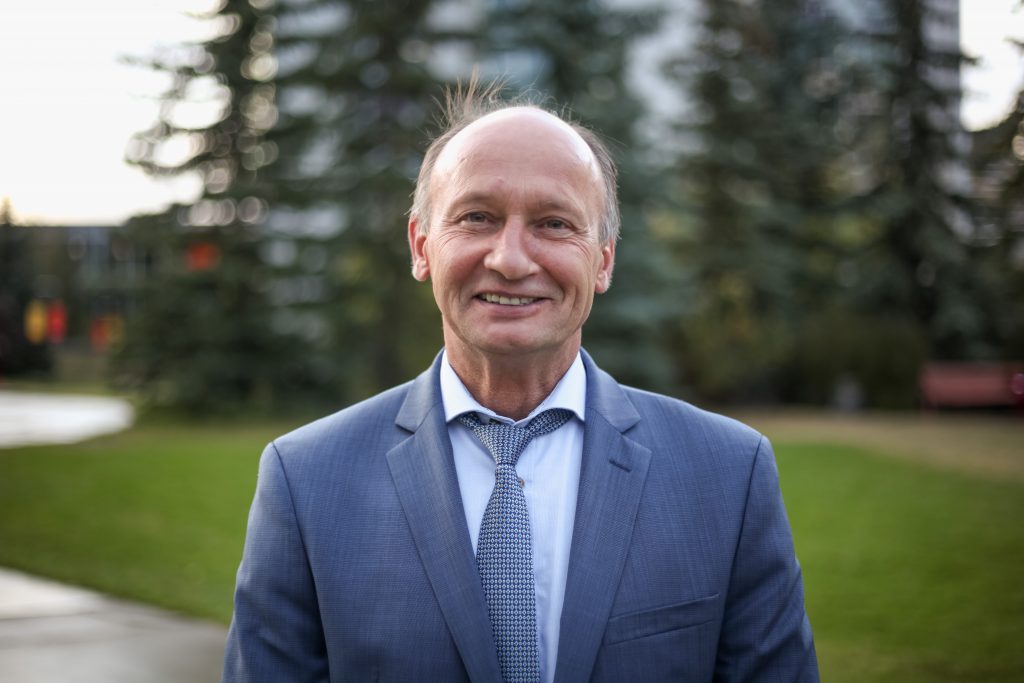
ANDRE CHABOT – Running for Mayor
“I don’t think we are traveling down a path of financial stability.”
No mayoral candidate has more experience on Calgary city council than Andre Chabot. He has served as Ward 10 councillor since first winning the seat in a 2005 byelection, though his mayoral aspirations are nothing new — according to Chabot, he planned to run for the top post twice, but decided against it both times, citing not wanting to split votes in 2010 and feeling unable to win against the popular Naheed Nenshi’s re-election campaign in 2013. Before entering politics, Chabot worked in construction and electronics. He has also held posts within the federal Conservative party.
Chabot’s platform heavily reflects that fiscal conservative background. He thinks the city is spending too much money on capital projects like the Green Line LRT and says Calgary should push for more funding from provincial and federal governments. He also emphasizes that he would not raise taxes if he was elected mayor.
Beyond money, Chabot lists respect and changing Calgary’s City Charter as his main platform points. He says that he thinks council has been disrespectful towards citizens, placing the blame on incumbent mayor Nenshi, saying that he “shows disrespect to people who aren’t of the same opinion as him.”
When asked about the biggest issues facing students this election, Chabot named affordable housing and affordable transit. Chabot said he had voted favourably for secondary suites in the past, but he has voted against proposals like a 2015 bid to allow secondary suites in inner-city wards. Chabot put forward a motion this July that proposed to fine those who listed illegal secondary suites for rent and create favourable zoning for secondary suites near postsecondary institutions.
Chabot thinks his biggest strength is his knowledge and experience.
“With the exception of Nenshi, all the other candidates have absolutely zero experience, zero knowledge of the city’s financials,” he said.
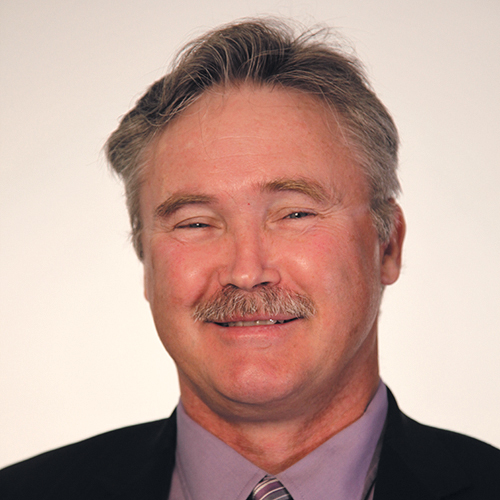
BRENT CRISHOLM – Running for Mayor
“You should be doing it for the people, not for yourself.”
We had to cut off many candidates we spoke with mid-interview because of the length of their answers. That wasn’t a problem for Brent Crisholm, who blew through our slate of questions in just under five minutes. Crisholm grew up farming and now works in the oil and gas industry. He’s proud of his upbringing, in which he worked delivering newspapers and mowing lawns.
Crisholm is succinct about his reasons for running for the city’s highest post — “I want the politician to be held accountable to the people,” he said.
His platform is similarly compact. Crisholm stressed that he wants wages for members of city council to drop significantly, stating that he’d take the mayoral salary down to $84,000 per year from the current $212,000 per year. He also says he wants community associations to take a more active role in municipal politics. Crisholm also mentioned that he was interested in looking into disciplinary action, like job termination, for councillors who are not doing a good enough job.
When it comes to students, Crisholm says the rising cost of tuition coupled with the rising cost of housing is a problem. But his biggest complaint lies with parking services on campus. He wants the University of Calgary to build a new parkade that can park “at least 2,000 vehicles for $30 a month.”
“What makes me very ill is the cost to park a vehicle at the university. You may as well be making a mortgage payment,” he said.
Crisholm’s biggest problem with incumbent mayor Naheed Nenshi is the handling of the Calgary Flames arena dispute. He said the problem needs a creative solution. He proposes building the arena on private land outside city limits. Crisholm adds that the city could also build auto-racing facilities at the same location in order to attract NASCAR sport to Calgary.
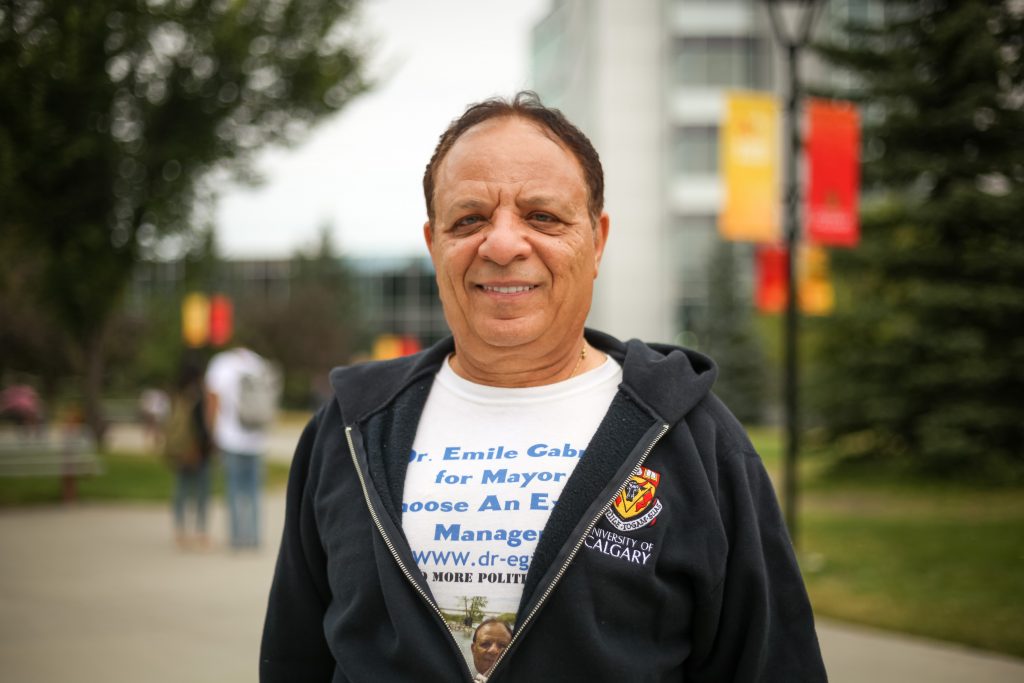
EMILE GABRIEL – Running for Mayor
“I see this as a job. I’m applying for a job, and I have the experience.”
Emile Gabriel was born in Egypt and moved to Canada at a young age. He grew up in poverty after his father passed away when Gabriel was 12, an experience that he says gave him the perspective necessary to run Calgary.
“I understanding suffering because I lived it. I understand struggle and that’s part of what’s qualified me to run, because we’re suffering today because of the economy.”
Beyond his upbringing, Gabriel points to his education as a qualifying experience for the job. He has a degree in civil engineering and recently completed a PhD in management at the University of Calgary. He has worked in consulting and management.
Gabriel’s platform starts with a vow to implement term limits for members of city council. He wants a two-term maximum under normal conditions, but says a third term could be allowed if enough of the electorate votes to allow the candidate to run again. He says this would ensure councillors are reelected for “their honest work for their communities, not the money people pay to support them.”
The other points on Gabriel’s platform are direct democracy and leadership by example. For the former point, he wants councillors to seek more consultation from citizens before they make decisions. On the latter subject, Gabriel says he wants to cut his salary in the first two years of his term to make salary cuts more palatable to other members of council.
Gabriel identified secondary suites as the biggest student issue of the election. He wants to make the process for secondary suite approval administrative, instead of on a case-by-case basis before city council. He also proposed buying hotels near transit lines to repurpose into student housing.
In a crowded field, Gabriel says he stands out because he’s “the only candidate that has the experience.” He refers to his knowledge of urban planning and extensive education as factors that make him fit to be the city’s mayor.
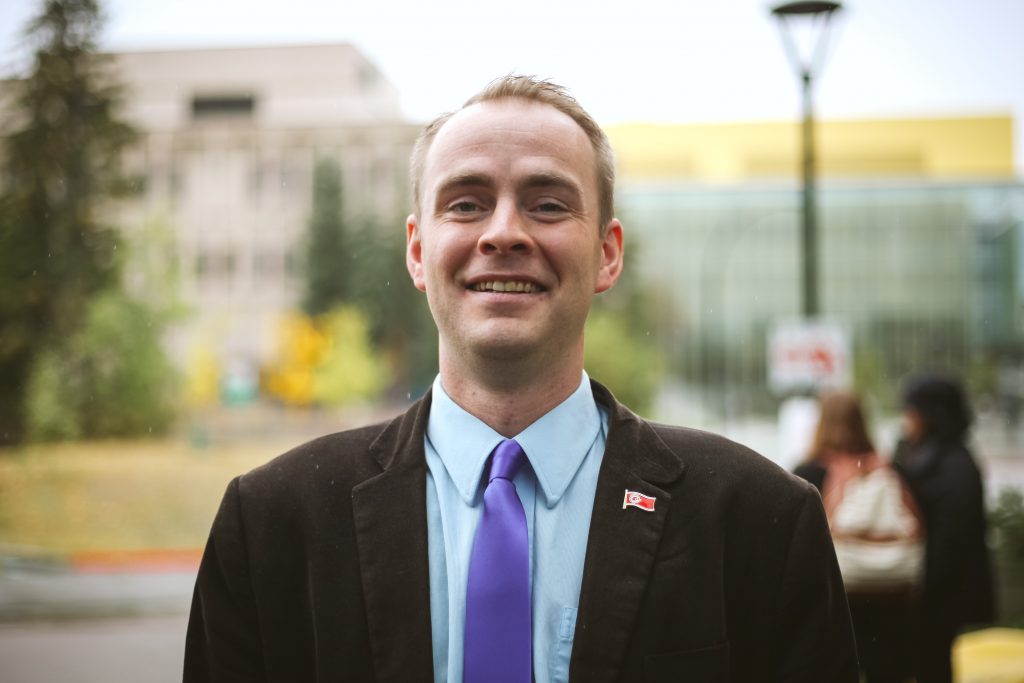
DAVID LAPP – Running for Mayor
“Politics is a vehicle for where we want to go.”
David Lapp bills himself as the millennial candidate. At 33, he’s the youngest person running for mayor. Lapp currently works in the non-profit sector. After receiving 3.8 per cent of the vote for Ward 8 councillor in 2010, Lapp decided to run for public office again in order to “represent marginalized communities” and engage in “community consultation.”
The first point on Lapp’s platform emphasizes fiscal conservatism. “It’s the citizen’s money,” he repeated, saying that he thinks city council spending on things like public art is exorbitant. His platform also included public safety and leadership on council. Lapp pointed to his position as the fourth child in a family of six as evidence of his ability to work through conflict and disagreements.
“I had to be a diplomat, I had to be a peacekeeper,” Lapp said. “And I think this council definitely needs a peacekeeper.”
On student issues, Lapp brought up a plan for secondary suite legislation. He said that he would not advocate for blanket approval of suites throughout the city because he does not think it would pass council. Instead, he wants to rezone the city for secondary suite development through individual plebiscites for each ward.
“We need to find reasonable solutions to these ongoing problems,” Lapp said.
He also brought up the cost of tuition, something under the jurisdiction of the provincial government. Lapp recognized this, saying he would talk to Members of the Legislative Assembly to advocate for lower tuition. He also said that he thinks transit should be more easily accessible to students, especially international students who do not know the city’s geography.
Lapp said he wants to govern differently than incumbent mayor Naheed Nenshi, who he says is “disconnected and arrogant.” He added that his leadership style will help the council reach decisions on topics that have previously been divisive.
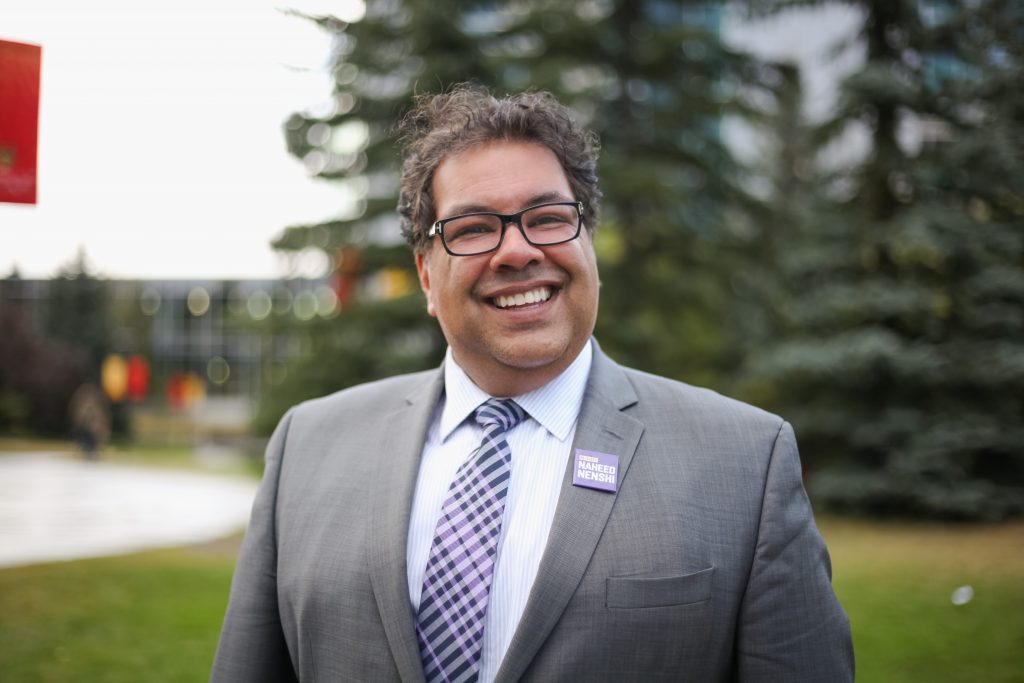
NAHEED NENSHI – Running for Mayor (Incumbent Mayor)
“I love this city, I love this university. Everything I do comes from that.”
Prior to his election as Calgary’s mayor seven years ago, Naheed Nenshi worked in the private sector for a management consulting firm, worked in non-profits and taught at the University of Calgary and Mount Royal University. He is a U of C alumni and completed his master’s degree at Harvard.
Nenshi’s platform is focused on the economy and continuing the projects he worked on as mayor. He said he wants to make sure projects that started during his term, such as the Green Line LRT, are able to finish as planned. He is also running the idea of embracing diversity in Calgary during a time when he says racism, sexism, homophobia and bigotry are on the rise.
“It’s been my great honour for seven years to speak out as a voice against these things and as a voice for pluralism and diversity and opportunity for every single person to live a great life,” he says. “At this time in history, voices like that need to get louder.”
On student issues, Nenshi says he is focused on creating a city and an economy where graduates can start their career. He also added that secondary suites and transit are particularly important to students.
“There are 35,000 Calgarians — many of them students — living in illegal, unregulated suites and I think that’s immoral and unethical,” Nenshi says.
Nenshi added that he sees the lack of secondary suites legislation as his biggest failure as mayor but that a new council has a chance to make it right.
“Secondary suites are actually part of a broader concept of safe and affordable housing for everyone,” Nenshi says. “Right now, far too many students are living in illegal, unregulated suites and it worries me.”
Nenshi says his goals stem from his love for the community.
“I’ve always been raised with the requirement to serve and the fact that I’m able to serve at this level is something that is really humbling for me,” he says.
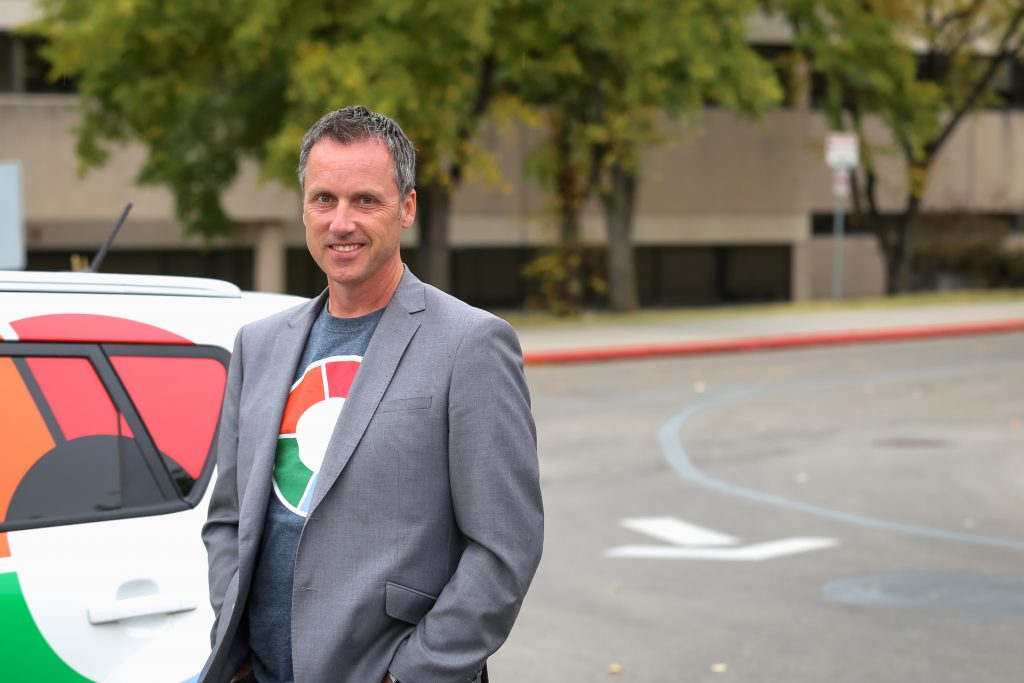
CURTIS OLSON – Running for Mayor
“Over my entire career, I’ve been committed to being professional and respectful.”
Curtis Olson is a Calgary Police Service officer, a role he’s been in since 1999. He’s currently a graduate student at the University of Calgary Faculty of Environmental Design studying urban planning. He says his experience and knowledge about city budget and policy are among the reasons he is running for mayor.
The primary point on Olson’s platform is governance. He says he plans to cut the city’s operating budget by five per cent without affecting ongoing services. He also stressed that he wants the city’s decision-making to be informed by data. He also wants to be open to tech startups like Uber.
Olson repeatedly emphasized having “a united council” with “open governance” for working-class Calgarians. He also notes that he’s only taking what he calls a symbolic donation of $20.17 — a nod to the current year that he says demonstrates his refusal to be influenced by big money.
“Anyone who accepts thousands of dollars — and they all have — not any one of them can say that they’re for Calgarians or for students,” Olson said.
Olson identified transit accessibility and housing as the two biggest issues facing students. He said the city needs to increase the amount of data they collect on transit ridership in order to better make decisions on what services to expand. For housing, he blames incumbent mayor Naheed Nenshi for the city’s stagnation on secondary suite legislation, which he says “speaks to a lack of leadership.” He says he plans to make progress on secondary suites by working in tandem with councillors.
Olson ended his interview by attacking Nenshi, saying that he just plans to get re-elected and that issues like secondary suites show the current mayor’s “failing leadership.”
“I think you can expect to see some change,” Olson finished. “But it’s not going to be with the current group.”
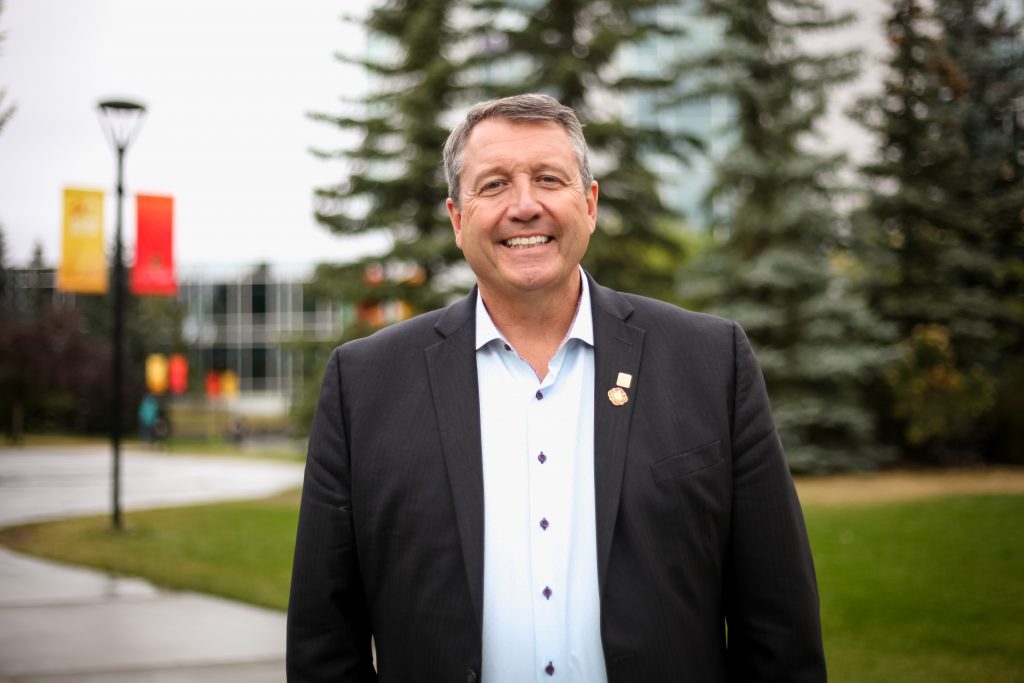
BILL SMITH – Running for Mayor
“There’s been a vacuum of leadership within city hall.”
Bill Smith wears his Calgary pride on his sleeve, flashing his Vanier Cup championship ring that he won while playing with the Dinos football team in 1985. He completed both an undergraduate in physical education and a law degree at the University of Calgary and sat on the U of C board of governors for three years. He has worked as a firefighter and now owns a law firm. Smith says he set his sights on becoming mayor as a way to serve the city. He also said he wants to help transition Calgary away from economic reliance on oil and gas.
Smith started his platform by asserting that he would bring collaborative leadership to council, something he says has been absent in the seven years that incumbent mayor Naheed Nenshi has been in office. He also mentioned fiscal management and public safety as other focal points. He wants to make budget cuts but is adamant that those cuts won’t result in reduced police service.
Transportation and employment are the biggest issues facing students, according to Smith. He says that existing transit infrastructure isn’t welcoming to non-central campuses like the U of C and Mount Royal University. He also wants to make it easier for students to find work after they graduate by lowering taxes and regulations for Calgary businesses.
Smith recognizes secondary suites as a vital part of transitional and student housing and wants to find a way to get more illegal suites registered with the city. He plans to do this by talking with councillors and reaching a compromise.
“You have a number of R1 communities that don’t want secondary suites, and I have some empathy for that, but we also have people who need housing,” Smith said. “How do we find a compromise there?”
More than anything, Smith emphasized that he wants to talk with members of council in order to create a list of priorities and ensure that everyone is working together towards the same goals.
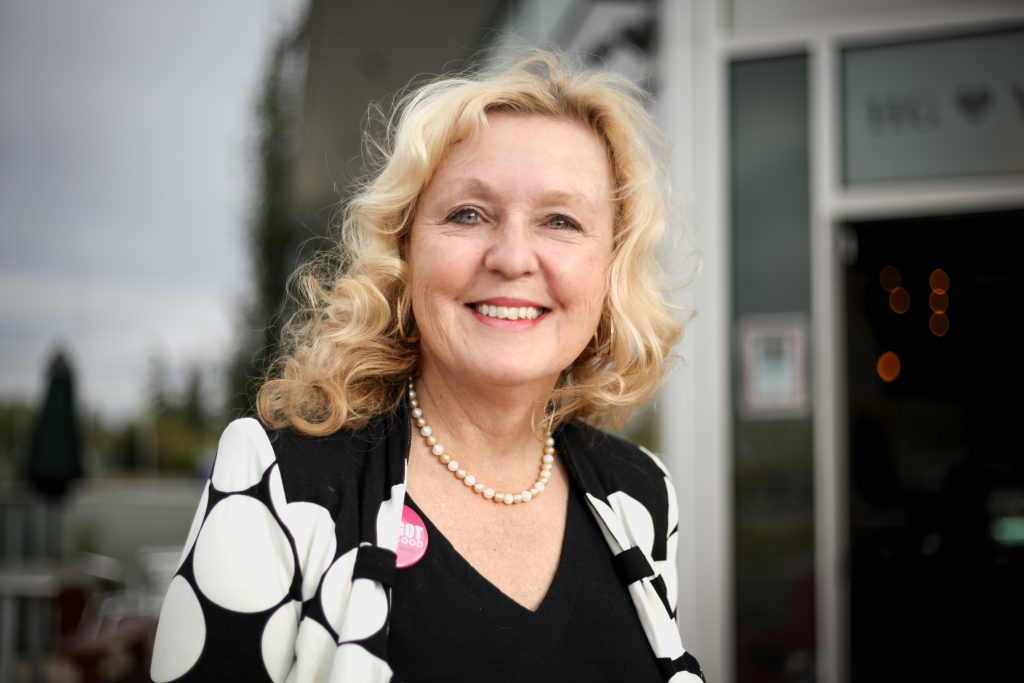
MARGOT AFTERGOOD – Running for Ward 7
“I am knocking on doors, asking people to vote for me like I’m asking an employer to hire me.”
Margot Aftergood has a degree in urban planning with experience as a commercial insurance broker. Aftergood was briefly Ward 10 alderman in 2004, but she resigned amid allegations that her campaign team stuffed ballot boxes. She said she was waiting for her children to graduate from university before running again.
Aftergood distinguishes herself as the only fiscally responsible candidate in the race.
“I have a pink sign but I am the only conservative,” she says.
Aftergood said she sees a disconnect between city council and Calgarians, saying citizens are frustrated with not hearing back from councillors and a lack of consultation.
When asked about student issues, Aftergood said the UPass was priced unfairly, substantiating her argument with data from the Gauntlet. However, she was mistaken on many details about the UPass.
Aftergood was the only candidate to mention the property taxes that U of C residence buildings pay. Last year, students living in U of C residence buildings paid, on average, $225 in property taxes. Most provinces in Canada do not charge property taxes on post-secondary residence buildings.
Aftergood said one of the things she believes sets her apart from candidates in the race is her clear stance on secondary suites.
“I do not support and will not vote on blanket legalization of secondary suites,” she said. “You can’t punish the people who have done the right thing, who have made it safe, and give everybody a blanket approval. It’s wrong.”
She added that the rental market is very favourable for students.
“Students pretty well can write a ticket on their living,” she said. “There is so much available in rentals. You don’t have to live in basement suites. You can live in beautiful brand-new homes for such a great deal.”
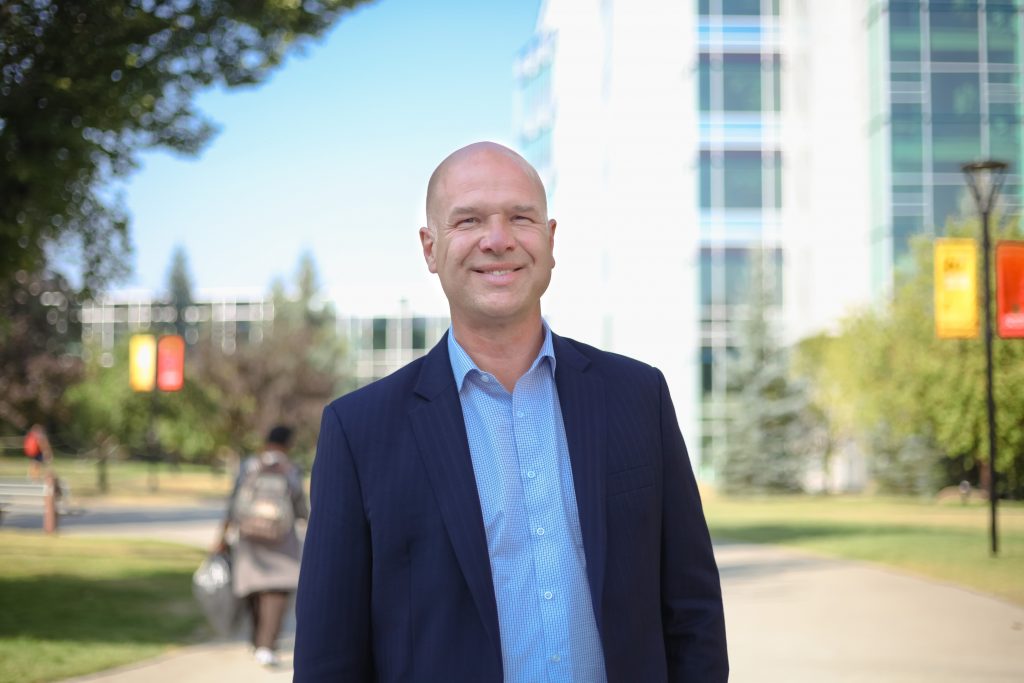
BRENT ALEXANDER – Running for Ward 7
“We need to retain services for all our people but at the same time we need to be responsible.”
Brent Alexander has years of experience in the financial sector. With a bachelor of commerce and an MBA from the University of Calgary, as well as a certification in urban design, Alexander is running on a campaign of bringing financial expertise and evidence-based decision making to city council.
Alexander says he wants to rebuild the trust between council and citizens. He said because of this, he is not accepting any donations from corporations.
“I know that we need to work with [corporations] but we should never be seen to be working for them,” he said. “I refuse to be compromised on that regard.”
His platform mentions sustainable funding for the arts sector, better neighbourhood planning and tying tax increases to population growth and the rate of inflation. He added that he would propose not increasing council member’s salary for four years.
“We need to start at the top and work our way down,” he said. “That way, all the way down they know everyone’s taking the pound of flesh that’s required in this time.”
Alexander said secondary suites are arguably the most important issue for students. He said council has previously listened to the loudest voices on this issue. He cited concerns over the current process, which does not give rights to tenants and landlords who are working within the illegal secondary suite market. His solution is to propose a compromise.
“What I propose is to have a blanket solution, but also allow R1 neighbourhoods to opt-out if they can determine that they are the majority,” he said.
Alexander also criticized incumbent Ward 7 councillor Druh Farrell on her anti-fluoride stance.
Alexander said what sets him apart from his opponents is his willingness to compromise on decisions with broad implications.
“When making decisions that impact others, you have to take a little water in your wine,” he said.
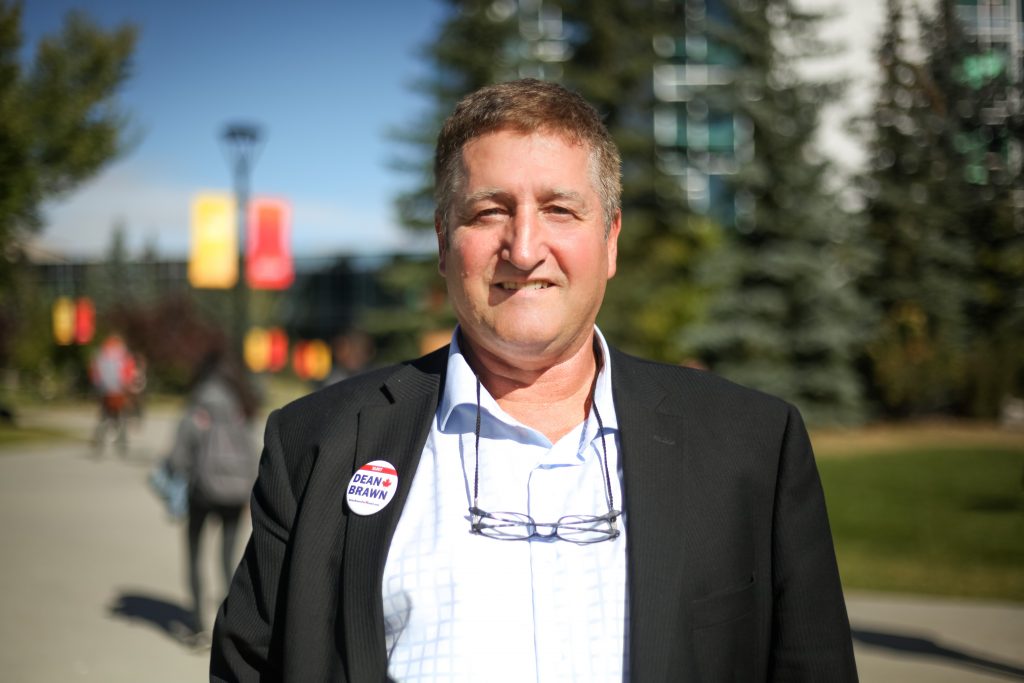
DEAN BRAWN – Running for Ward 7
“Council is the voice of the community, not the dictator of the community.”
A veteran of the airline industry and a 30-year resident of Ward 7, Dean Brawn came out of retirement to run for a spot on city council. Dissatisfied with the set of candidates for his ward, Brawn was convinced by friends to campaign himself.
Brawn’s most passionate platform point is about turning Calgary into a “business-friendly environment.” He points to tax increases on businesses as evidence of the city’s hostility towards businesses and says they should be given more freedom from council. He wants more consultation between businesses and city council and suggests subsidies or tax breaks for businesses.
The other point on Brawn’s platform is taking care of the city’s seniors and its most vulnerable people. He spoke at length about Midfield Mobile Home Park, which Calgary is planning to close despite scrapping plans for a relocation project for current residents.
“These people are among our most vulnerable,” Brawn said. “Is this how we treat our most vulnerable?”
The biggest student issue this election is transit, according to Brawn. He referenced UPasses, which are mandatory for all full-time students but more expensive than the city’s new low-income transit pass.
“It’s a lack of communication between the city and the post-secondary institutions,” Brawn said. “How do you work with groups? Not, ‘Do something and let’s leave some of our major customers out of the discussion.’ ”
Brawn is fine with secondary suites as long as they abide by zoning regulations. But he takes issue with secondary suite approval in some communities, saying that the increased density causes parking problems.
Brawn touts his stature as a community member, not as a politician and takes pride in his family’s Calgary history. “This city has the potential to be great again,” he said, before apologizing for appropriating United States president Donald Trump’s infamous phrase.
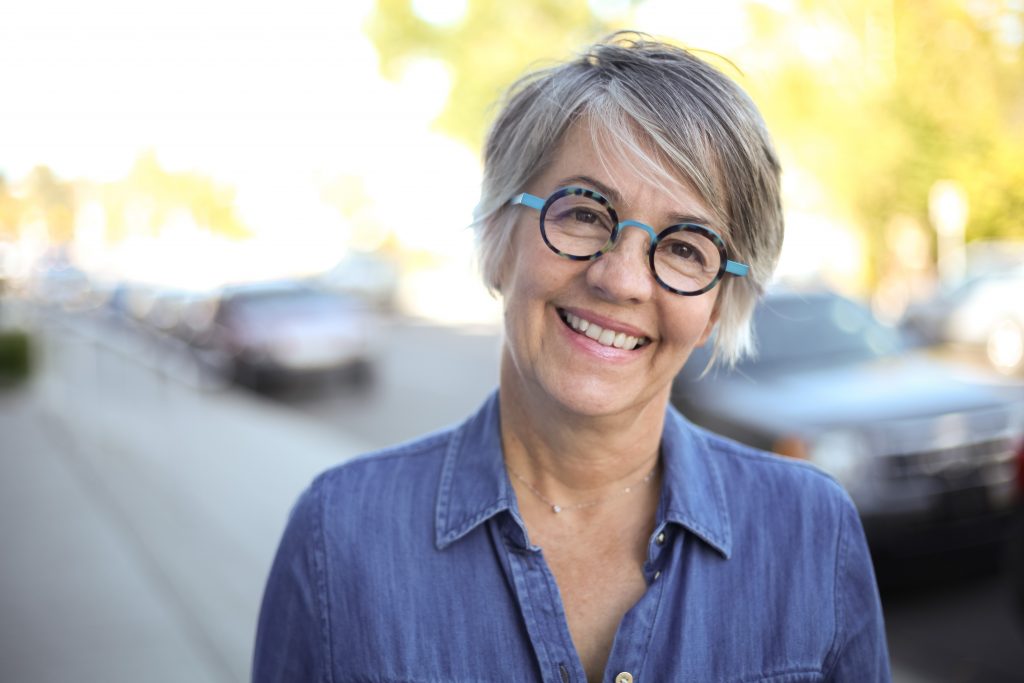
DRUH FARREL – Running for Ward 7 (Current councillor)
“I’m proud of my track record. I have a lot more to do and I know how to get it done.”
First elected in 2001, Druh Farrell is the current Ward 7 councillor. Prior to her election, Farrell was a successful designer and business owner. Through her role within the business community, she became involved with various committees and community associations. According to Farrell, running for City Council was a continuation of her community involvement.
Farrell describes her platform as one aspiring to build a resilient city.
“Flood resilience, economic resilience, building communities that are open to all ages and abilities, having the ability to age in place and having safe housing in place for young people,” she says. “My major focus in the last term is to improve the resilience of the ward and of Calgary.”
When asked about student issues, Farrell said affordable housing and transit are essential. She said the council sometimes spends significantly more time discussing a single suite than an entire area plan and added that this response is disproportionate.
“We are the last city in Canada to not have elegant regulation for suites. I have been consistent that I support legal, safe suites in all communities,” she says.
Farrell added that building a vibrant city for young people to build their career in is another one of her focuses on student issues.
Farrell cites her experience in city council as her strength. She says she doesn’t shy away from difficult issues and knows the workings of council well.
“I have a tremendous amount of experience and I know how to get things done,” she said. “I’ve been extremely effective in moving issues that matter to my constituents forward.”
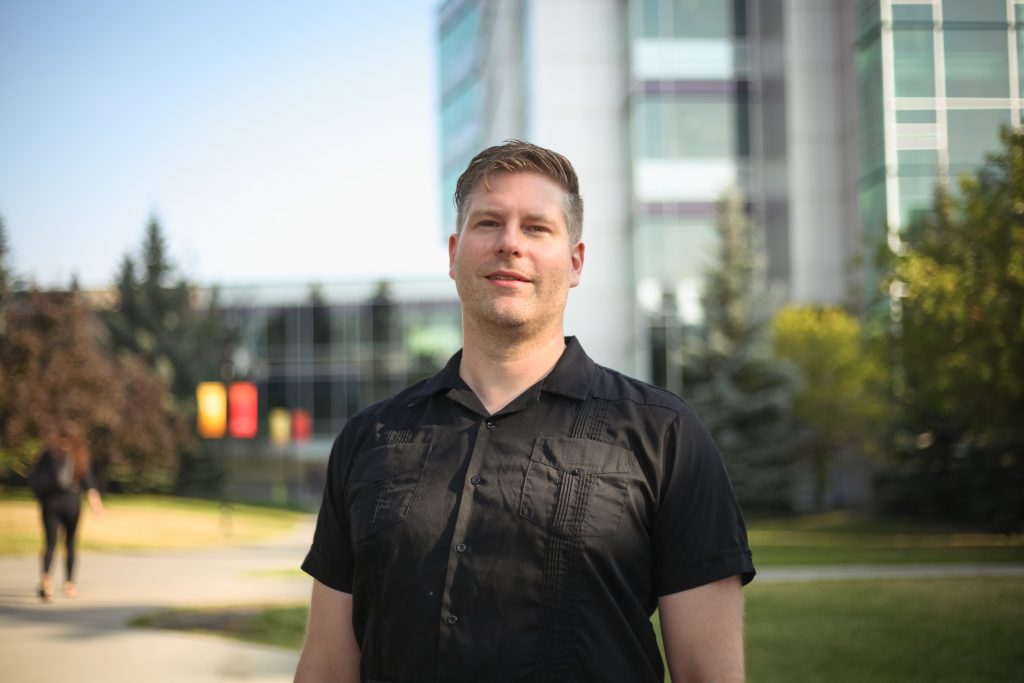
MAREK HEJDUK – Running for Ward 7
“There is a lot of stuff the council does that makes no sense.”
Marek Hejduk describes himself as a serial entrepreneur, having worked in the gardening industry and the restaurant industry, among other jobs. He moved to Calgary from Vancouver in 2000 and has been involved in the community ever since.
Hejduk says he was asked to run for city council by Parkdale Community Association members due to their dissatisfaction with Ward 7 incumbent Druh Farrell. He said he took four months to think about his decision and consulted his two kids and wife before putting his name forward.
Fluoride is a major issue for Hejduk, who said he has spoken to many parents who voiced their concerns about children’s dental health. He cited research by the Cumming School of Medicine as evidence for his position on fluoride.
“[Not having fluoride in our water] made our children, our seniors and new Canadians a lot sicker,” he added.
Hejduk said he believes in students as drivers of change in the community. He mentioned that he was the first and only candidate in municipal history to approach the Students’ Union to consult with them, though the SU promptly discredited that claim.
When asked about student issues, Hejduk said he plans on creating a separate office to deal with issues of secondary suites. He cited his own experiences of living in secondary suites during his years as a student as his source of concern for illegal suites.
He added that the same office would also deal with Airbnb and other rental services.
“We would come aggressively after [Airbnb] because those people are aggressively taking out the rental supply,” he said.
Hejduk said another platform point is in opposition to the Olympics. He said he likes the idea of the Olympics and believes it is good for the city but opposes the city’s planning procedures.
“As the bid stands right now, I am opposed,” he said. “Taxpayers shouldn’t be paying for it. They won’t benefit from it.”
